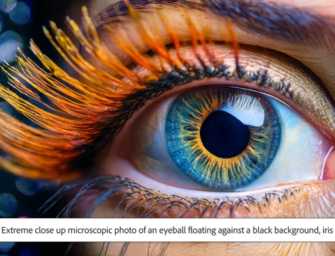Synthetic Speech Startup Replica Studios Closes $2.5M Funding Round

Speech synthesis startup Replica Studios has closed a $2.5 million seed funding round led by The Venture Reality Fund. Replica is currently developing a platform to streamline generating artificial voices that can vary tone and style depending on what the creator needs.
Adaptive Synthetic Voices
Replica is developing a platform for building synthetic voices for artificial intelligence. The Replica Creator Tool currently in beta testing turns scripts into spoken speech with the option for the user to adjust the pacing, emotion, and other facets of the synthetic voice. The company also plans to offer its platform for people who want to create personalized synthetic voices for entertainment, broadly similar to the way Amazon has enabled Alexa to imitate Samuel L. Jackson’s voice.
Founded last year in Australia, Replica is now based in San Francisco, where most of its investors are based. Along with Venture Reality, the funding round included Carthona Capital, Techstars, and Mawson Ventures among others. The seed funding will go to Replica’s plans for tech development and partnerships, the company stated.
“In the past year, we’ve developed our proprietary AI and text-to-speech software, and launched our first beta product for creatives,” Replica CEO Shreyas Nivas said in a statement. “We’re eager to launch these solutions and explore additional opportunities in media and content production, where we can offer dynamic and contextual personalization in audio as a medium.”
Artificial Speech, Real Growth
There’s plenty of potential for synthetic voices, especially as the technology improves. Voice acting, video games, vocal prosthetics, and other verticals could make use of this kind of technology. Replica is not the only company developing it. Resemble AI offers its own take on crafting synthetic speech from real voices and is raising funding of its own, including $200,000 as part of the Betaworks Ventures Synthetic Camp accelerator. There’s also VocaliD, which began as a voice prosthesis developer, but now offers synthetic voices for call centers and voice apps.
The big names aren’t ignoring the space either. Amazon and Google both are working on variations of artificial speech generation. Alexa uses neural text-to-speech (NTTS) while Google Assistant is experimenting with WaveNet technology. Baidu has also been investigating what it calls voice cloning for some time. As Replica and its competitors refine the process of crafting synthetic voices, the options for customizing them will likely expand in turn, making it a race for which platforms can secure a spot as a default choice.
Follow @voicebotai Follow @erichschwartz
Voices.com to Offer Custom, Synthetic Voices Through Partnership with VocaliD








